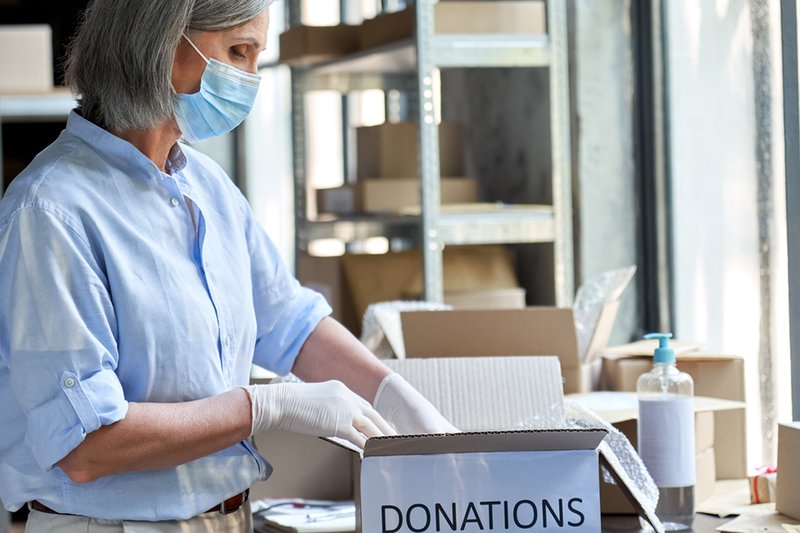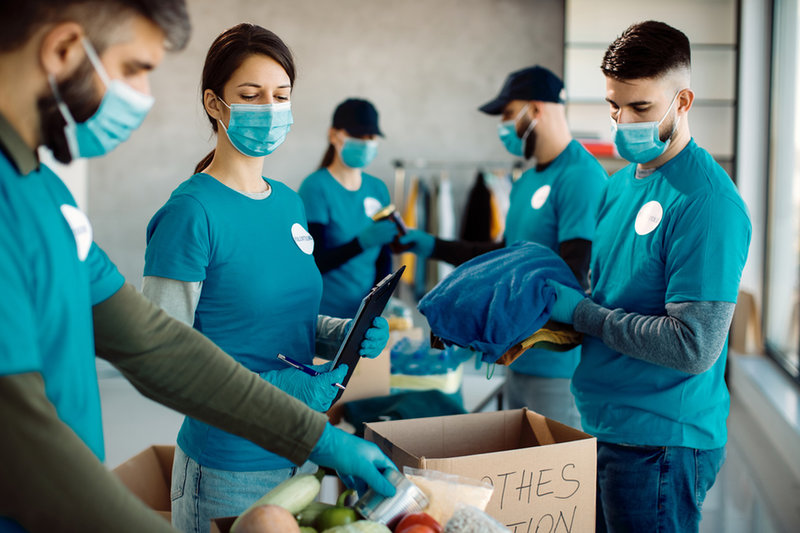OPERATIONS
Keeping humanitarian missions flying during the Covid-19 pandemic
Despite the Covid-19 pandemic, operators have kept humanitarian air corridors open, helping international organisations deliver assistance to vulnerable people. Ilaria Grasso Macola looks into these initiatives and reflects on the positive impact of aviation during humanitarian crises.
Image: copyright
Despite the global halt to aviation caused by the Covid-19 pandemic, operators have kept humanitarian air corridors open, allowing international organisations to deliver goods and medical equipment to nations most in need.
Since its inception in May 2020, the EU Humanitarian Air Bridge programme – set up to deliver medical supplies needed for vulnerable countries’ coronavirus response – has delivered more than 1,500 tonnes of equipment, as well as 1,700 medical and humanitarian staff across 65 flights.
Funded by the EU, the €10m initiative operated in coordination with the World Food Programme (WFP), delivering assistance to countries such as Iran, Sudan and Venezuela.
“The EU Humanitarian Air Bridge is helping humanitarian organisations continue their life-saving work, at a time when needs are at risk of becoming more acute,” commented EU crisis management commissioner Janez Lenarčič in a statement.
“Thanks to the in-built flexibility in the way it operates, the EU Humanitarian Air Bridge is able to react rapidly to needs and support the delivery of aid to the most critical areas.”
Delivering aid around the world
The EU is not the only international organisation to run humanitarian air corridors during the pandemic. In April, the first UN solidarity flight departed from Ethiopia’s capital Addis Ababa, transporting medical cargo to all countries in Africa, to help the rest of the continent contain the pandemic.
Alongside partners such as the Jack Ma Foundation and the Africa Centres for Disease Control and Prevention, the WFP delivered World Health Organisation (WHO) supplies – including one million face masks and personal protective equipment – to protect health workers across Africa. By the end of April, the cargo had reached 80% of the continent.
“We have seen time and again our health workers fall victim to infectious diseases as they work in hospitals and sometimes pass away,” commented WHO Africa regional director Dr Dr Matshidiso Moeti in a statement. “This is unacceptable. This personal protective equipment will help keep them safe. WHO is committed to protecting those on the front-lines of healthcare.”
“We can stop this virus in its tracks, but we’ve got to work together,” said WFP executive director David Beasley in a statement. “WFP is committed to getting vital medical supplies to front lines and shielding medical workers as they save lives. Our air bridges need to be fully funded to do this, and we stand ready to transport frontline health and humanitarian workers as well as medical cargo.”
Since April, the programme has grown, delivering millions of personal protective equipment items to at least 133 countries worldwide.
WFP is committed to getting vital medical supplies to front lines.
The solidarity flight programme is not the only one run by the WFP. On 5 August, the Pacific Islands Forum, alongside the WFP, marked the start of a humanitarian air service to the Pacific region with a flight carrying Covid-19 medical equipment to Papua New Guinea.
Running on Australian and American funds, humanitarian flights are part of the Pacific Humanitarian Pathway on Covid-19 initiative, a platform that aims to facilitate the transport of medical supplies around the region’s 20 states.
“The humanitarian air service flights are a welcome demonstration that the Pacific Humanitarian Pathway on Covid-19 is doing what leaders intended - protecting citizens and supporting health systems,” said Pacific Islands Forum Secretary General Dame Meg Taylor in a statement after the launch of the service.
As a result of the impact of Covid-19 on air cargo – which makes it difficult for Pacific governments to import medical equipment – the Pacific Humanitarian Pathway on Covid-19 transports supplies on the behalf of humanitarian organisations and governments.
“With the shutdown of the aviation sector affecting the ability of governments and aid organisations to import goods, we have established the Pacific humanitarian air service, which will deliver cargo to those countries where there are no viable commercial options available for the importation of freight by air,” explained WFP Pacific Multi-Country office director Jo Pilgrim in a press statement.
“Normally, humanitarian air services only move cargo on behalf of humanitarian organisations,” she added. “But in this particular case in the Pacific, because of the unprecedented circumstances we find ourselves in, where no one can get anything on a plane, we’re also moving medical cargo for the governments.”

Program-Connect: linking WFP with reliable aviation partners
Other partnerships, such as the one between the WFP and the Flight Safety Foundation, have been Flight Safety Foundation’s Basic Aviation Risk Standard (BARS) managing director David Anderson explains that collaboration between the two organisations began unofficially seven years ago but was formalised as the Program-Connect initiative due to Covid-19.
Aid cargo was usually carried on commercial passenger planes, but the 92% drop in passenger capacity registered by aviation between April and June going put aid corridors and their supply chains at risk.
To keep operations going, the WFP, with the help of BARS, leveraged its logistics capacity to fill in the gaps left by the reduced availability of commercial planes.
Under the Program-Connect initiative, BARS aircraft operators are evaluated according to the UN’s aviation standards, making them eligible to join the WFP-registered aircraft operators and deliver supplies to countries in need.
The 92% drop in passenger capacity between April and June put aid corridors at risk.
“A BARS-registered operator or somebody who wants to join the BARS programme voluntarily elects to have an extra humanitarian category added to their order,” explains Anderson. “We adapted our programme so that we could do a review of these additional items, whilst [operators] go through the BARS audit.
“[Operators] can get an additional assessment, which makes them eligible for use by the WFP, avoiding duplicate orders for the aircraft operator.”
According to WFP Aviation and Safe Unit former chief Jose Odini, Program-Connect links the WFP with reliable aviation partners that have already gone through extensive scrutiny as part of the BARS programme evaluation.
“Program-Connect will allow WFP to identify air operators registered with BARS, which may be interested in completing the registration with WFP for the benefit of the humanitarian community, therefore linking both registration systems,” commented Odini.
“This will create positive synergy, eliminating overlaps between the respective WFP and BARS risk evaluation systems and generating a positive complementarity between them.”

Covid-19 and the future of humanitarian air missions
Humanitarian operations have not stopped, but they have been profoundly affected by the pandemic.
ACAPS, a Geneva-based NGO that provides independent humanitarian analysis, carried out a survey on the impact of Covid-19 on humanitarian operations, receiving responses from more than 80 non-governmental organisations worldwide.
According to the survey, 74% of respondents reported a significant impact in the implementation of projects while 60% witnessed a reduction in access to services. 56% also reported they had felt a significant impact across all operations.
The WFP has got aircraft operators that are ready to go and can confidently call on for support.
For their part, programmes such as BARS were profoundly hindered, says Anderson, especially when it came to moving auditors around the 35 countries BARS works in.
“We had to adapt very quickly because we couldn’t stop the assurance processes, they had to go ahead,” he adds. “That’s why we came up with a remote audit model.”
Initiatives such as Program-Connect will help organisations like the WFP continue their humanitarian work in the future. “Program-Connect facilitates the WFP even more, as it can draw aircraft operators which it knows they have audited to its standards,” concludes Anderson.
“If something crops up anywhere in the world – and particularly in the 35 countries that we’re exposed to – the WFP has got aircraft operators that are ready to go and can confidently call on for support.”